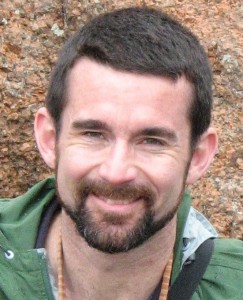 Having recently posted some thoughts on the continuing centrality of diagnosis in doctoring, I was happy to see the recent Institute of Medicine (IOM) report “Improving Diagnosis in Healthcare.” I especially appreciated the IOM’s clear statement that “Improving the diagnostic process . . . represents a moral, professional, and public health imperative.”
Having recently posted some thoughts on the continuing centrality of diagnosis in doctoring, I was happy to see the recent Institute of Medicine (IOM) report “Improving Diagnosis in Healthcare.” I especially appreciated the IOM’s clear statement that “Improving the diagnostic process . . . represents a moral, professional, and public health imperative.”
The IOM describes a helpful conceptual model of the diagnostic process, and makes eight practical recommendations for moving forwards. I think all eight recommendations sound sensible, and some (such as “enhance healthcare professional education and training in the diagnostic process” and “establish a work system and culture that supports the diagnostic process”) are particularly helpful, however, I fear these steps may only address the “icing” and not the “cake.” All eight recommendations deal primarily with issues of medical culture, medical processes, or medical systems; and all eight recommendations have the potential to be reduced to checklists, quality improvement projects, or process redesign efforts.
There appears to be scant attention in the IOM recommendations to the fundamental importance for physicians of a liberal arts education that addresses how to deal with primary sources, critical thinking, uncertainty, and a sense of history.
Many, if not most, medical decisions in the 21st century are made with reference to some sort of pre-appraised reference material, whether a tangible textbook, an online reference, or notes copied from a lecture. Such mental shortcuts are vital for the day to day practice of medicine, but in and of themselves can provide only a bare bones sense of the richness and variety present in medicine. To be a truly critical thinker, a physician needs the capacity to read, comprehend, and engage with the primary studies and subsequent synthetic meta-analyses and critiques. Only then can one appreciate what the data do show and, more importantly, what the data do not tell us.
Similarly, it is only by becoming comfortable with reading the detailed reasoning in guidelines, that one can arrive at an understanding of how guidelines, recommendations, and policies have been developed—and how they can be applied or might be misapplied.
A capacity to deal with uncertainty is also vital in approaching diagnosis. We have many and varied tools in medicine that we think we can use to arrive at greater certainty about a patient’s condition, but (setting aside for a moment the important concerns about overdiagnosis) sometimes that certainty makes no fundamental difference to how my patient will do.
For example, in the Upper Midwest of the US where I practice, we are continuing to develop our understanding of Ehrlichia and Anaplasma species. Recommendations have recently favored obtaining titres when one of these conditions is suspected, in order to help with epidemiologic clarification as to which parasite is where. While I appreciate the public health concerns here, when I am faced with a patient whose signs and symptoms are most suggestive of either Ehrlichia or Anaplasma, and the patient has no insurance cover, and I know both parasites respond equally well to doxycycline, I will likely treat, since the “test” will make no difference to my patient beyond added cost.
Likewise, while it is commonly taught that one needs chest radiography to diagnose pneumonia, a Cochrane review of two older studies suggests that in real life practice this may not actually be the case. In both examples, what is needed is sufficient certainty to arrive at a reasonable plan, along with attention to appropriate follow-up and continuity of care. What is also needed is the capacity to live with the tension of uncertainty, and to perhaps allow the “tincture of time” to play a part as well.
A sense of history is also vital to the practice of medicine. At the level of individual patient care, understanding the history of our concepts of disease (whether a particular condition, or of “disease and suffering” in general) is vital to understanding the different perspectives from which patients and other professionals may approach a given situation. (If in doubt, just read a few pages of Frankl, Weatherhead, or Tournier.) At the population level, we have convincing examples from outbreaks such as Ebola and SARS of our failure to learn from past successes and failures.
Make no mistake, I think the IOM recommendations are helpful. There is much that could be done to improve diagnosis, patient care, and communication processes. But if we focus on processes and overlook the fundamental, liberal arts educational issues of uncertainty, critical thinking, and history, we will all be the poorer for it.
William E Cayley Jr practices at the Augusta Family Medicine Clinic; teaches at the Eau Claire Family Medicine Residency; and is a professor at the University of Wisconsin, Department of Family Medicine.
Competing interests: I declare that I have read and understood BMJ policy on declaration of interests and I have no relevant interests to declare beyond a passion for clear and critical thinking.
